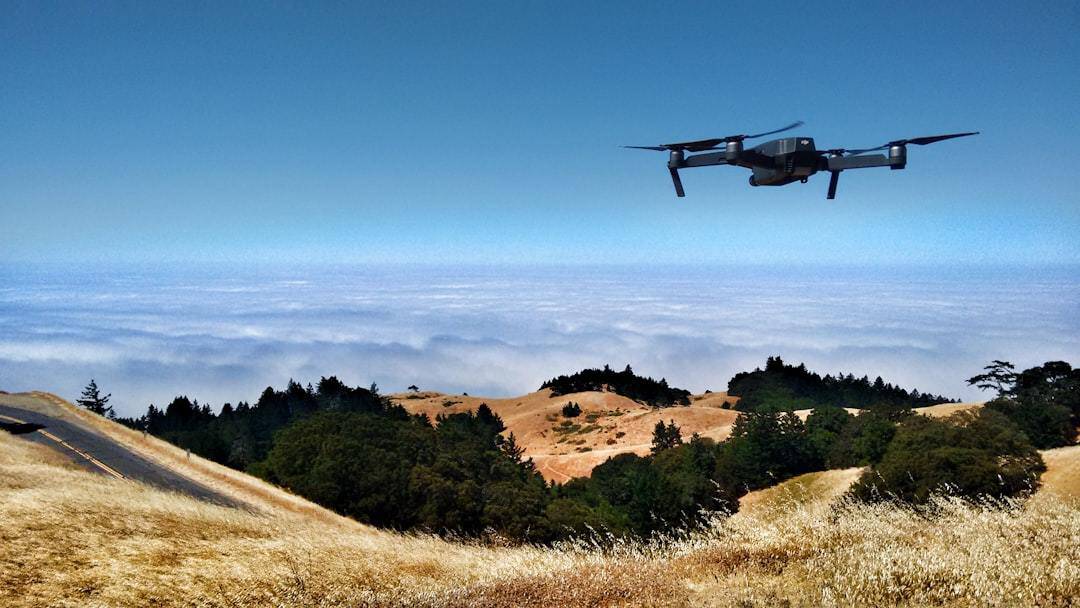
Learning how to start a drone business can be an exciting venture in today’s rapidly growing economy.
With experts predicting over 20% annual growth in the drone market, now is a great time to explore business start options.
But where do you begin?
What skills and equipment do you need to learn how to start a drone business?
And how can you navigate the drone rules and legal considerations?
Let’s break down the key steps and considerations for launching your own successful drone enterprise.
You can gain valuable insight into starting a photography business, or any drone-related service for that matter, with a little planning and effort.
What is a Drone Business?

Before we get into the nuts and bolts of how to start a drone business, it’s crucial to grasp the current state of the industry.
The drone services market is booming, with projections showing growth from $4.4 billion in 2018 to $63.6 billion by 2025.
This explosive growth is creating opportunities across various sectors.
Some of the most lucrative areas for drone pilots include:
- Aerial photography and videography.
- Real estate marketing.
- Agricultural surveys.
- Industrial inspections.
- Construction site monitoring.
- Search and rescue operations.
Each of these niches requires different skills and equipment.
For instance, real estate photography might only need a basic drone with a good camera, while industrial inspections could require specialized thermal imaging capabilities.
Many businesses utilize drone photography to provide aerial roof inspections, for example.
Step-by-Step Instructions for Starting a Drone Business
Here’s my unique way of approaching the skill of starting a drone business:
- Make Sure You Meet the Legal Requirements
- Choose Your Target Market
- Get the Gear
- Come Up With a Game Plan
- Price Your Services
- Marketing, Marketing, Marketing!
- Keep Learning
Without waiting any longer, let’s get into the detailed steps:
1. Legal Requirements
Now that you understand the landscape, let’s talk about the legal side of how to start a drone business.
In the United States, commercial drone operations are regulated by the Federal Aviation Administration (FAA) under the Small UAS Rule (Part 107).
Make sure you understand the regulations before flying a drone for any commercial purpose.
Here are the key steps to becoming a certified commercial drone pilot:
- Be at least 16 years old.
- Pass the FAA’s Aeronautical Knowledge Test.
- Undergo a TSA background check.
- Obtain your Remote Pilot Certificate.
To prepare for the knowledge test, you can study the FAA-provided materials or invest in a comprehensive prep course.
Many aspiring pilots find courses like Drone Pilot Ground School invaluable for passing the exam on their first try.
2. Choose Your Drone Business Niche
With legal requirements sorted, it’s time to decide on your specific niche.
This decision will shape everything from the equipment you buy to the clients you target.
It’s important to select the right legal entity as well, such as a sole proprietorship or limited liability company.
Consider these factors when choosing your niche:
- Your existing skills and interests.
- Local market demand.
- Competition in your area.
- Potential for profitability.
For example, if you have a background in construction, you might focus on providing aerial progress reports for building sites.
Or if you’re passionate about nature, agricultural surveys could be your calling.
You may even consider a niche offering services to construction mining operations.
3. Invest in the Right Equipment
Once you’ve chosen your niche, it’s time to invest in the right tools and drone training.
The drone you need will depend on your specific services, but here are some popular options to consider:
| Drone Model | Best For | Approximate Price |
|---|---|---|
| DJI Mini 2 | Beginners, Real Estate | $450 |
| DJI Air 2S | Advanced Photography | $1,000 |
| DJI Mavic 3 Pro | Professional Cinematography | $2,200 |
Remember, drones are just one part of your equipment needs.
You’ll also need to budget for:
- Extra batteries.
- Memory cards.
- Carrying case.
- Editing software.
- Insurance.
- Drone License.
- Social media marketing.
- Management systems.
- Hiring staff.
Speaking of insurance, it’s crucial for protecting your business.
Many drone pilots recommend providers like Verifly or Global Aerospace for comprehensive coverage.
Make sure you have adequate drone liability insurance.
Most insurance companies offer various insurance options, such as hull insurance, to cover the cost of property damage to the drone itself.
4. Develop Your Business Plan
With your niche chosen and equipment selected, it’s time to create a solid business plan.
This document will serve as your roadmap for starting a successful drone business.
Your plan should include financial projections, a marketing plan, and other business operations considerations.
Key components of your business plan should include:
- Executive summary.
- Company description.
- Market analysis.
- Target Market
- Organization and management.
- Service offerings.
- Marketing and sales strategy.
- Drone Maintenance.
- Financial projections.
If you’re unsure where to start, consider using a template like the one provided by The Prince’s Trust.
This is a great way to lay the foundation for success.
5. Price Your Drone Services
Determining how much to charge for your drone services can be tricky.
You want to be competitive, but also ensure you’re turning a profit.
Conduct thorough market research to understand the going rates in your area.
According to industry data, drone pilots can earn anywhere from $50,000 to $100,000 annually, depending on their niche and location.
ZipRecruiter reports the average drone photography salary to be $50,260 per year.
Here’s a general pricing guide:
- Basic aerial photography: $250 – $350 per session.
- Real estate photography: $200 – $500 per property.
- Specialized services (e.g., industrial inspections): Up to $500 per hour.
Remember, these are just averages. Your actual rates will depend on factors like your experience, the complexity of the job, and your local market.
6. Market Your Drone Business
With your business plan and pricing in place, it’s time to attract clients.
There are many effective marketing strategies for new drone businesses, both online and offline.
Consider utilizing social media and search engine optimization (SEO) to reach more potential customers.
Here are some marketing strategies to consider:
- Build a professional website showcasing your portfolio.
- Utilize social media platforms, especially visual ones like Instagram and YouTube.
- Network with potential clients in your target industries.
- Offer introductory rates or free demo flights to build your portfolio.
- Join online communities and forums related to drones and your niche.
Consider using platforms like Skye Link to connect with potential clients and access marketing tools specifically for drone businesses.
Don’t underestimate the power of local networking as well, such as attending industry events.
7. Continuous Learning and Growth
The drone industry is constantly evolving, with new technologies and regulations emerging regularly.
To stay competitive, you’ll need to commit to ongoing learning and skill development.
Embrace the ever-changing nature of this field.
This might include:
- Attending industry conferences and workshops.
- Pursuing additional certifications in your niche.
- Staying updated on FAA Airworthiness Directives and regulations.
- Experimenting with new drone technologies and software.
Remember, your Part 107 certification needs to be renewed every two years, so ongoing education isn’t just beneficial—it’s required.
Stay ahead of the curve by investing in advanced training opportunities.
Wrapping Up, and My Experience With Starting a Drone Business
Learning how to start a drone business can seem daunting, but with the right approach, it can be an incredibly rewarding venture.
From understanding the legal requirements and choosing your niche, to investing in the right equipment and marketing your services, each step is crucial to your success.
Embrace the challenges and rewards that come with being a business owner.
Remember, the drone industry is still relatively young and rapidly growing.
This means there’s plenty of room for innovative entrepreneurs who are willing to put in the work.
Whether you’re capturing stunning aerial footage for real estate agents or conducting complex industrial inspections, your drone business has the potential to soar.
So take that first step.
Get your certification, develop your skills, and start building your drone empire.
The sky’s the limit.
FAQs about how to start a drone business
How much does it cost to start a drone business?
Startup cost for a drone business can cost anywhere from $2,000 to $10,000 or more.
This includes the cost of a drone ($500-$2,000), accessories, insurance, and licensing fees.
More specialized equipment for industrial inspections can cost upwards of $10,000 and drone insurance $3,000 for public safety.
Do I need a license to start a drone business?
Yes, in the United States, you need to obtain a Remote Pilot Certificate (Part 107 license) from the FAA to operate a drone for commercial purposes.
This involves passing an aeronautical knowledge test and a background check.
How much can I make with a drone business?
Earnings can vary widely based on your niche, location, and experience.
On average, drone pilots can earn between $50,000 to $100,000 annually.
Some specialized services can command rates of $200-$500 per hour.
What are the most profitable drone business ideas?
Some of the most lucrative drone business niches include aerial photography for real estate, industrial inspections, agricultural surveys, and cinematography for film and TV production.
The profitability of how to start a drone business often depends on your local market demand and your expertise in these areas.

